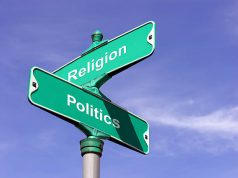“A government of the people, by the people and for the people….”
These are the words of the 16th president of the United States, Abraham Lincoln. He said this at a ceremony honouring US soldiers killed in the cause of democracy.
Democracy is a system of government designed primarily to serve ‘the people’, not just those at the helm of affairs.
The Nigerian constitution reflects this by setting up three equal arms of government – the executive, legislature and judiciary – with the view of warding off any dictatorial tendencies. If power and governance is to be that of the people, an understanding of the human nature grounded in reality purports that no single individual should have the faintest means to usurp power.
The executive is saddled with the responsibility of enforcing laws and managing the resources of the state on behalf of the people. The legislature enacts the laws of the land which in turn guides how life and governance operate. The judiciary on its part is shouldered with the supreme role of impartial interpretation and application of the law in line with the constitution.
One can see at a glance that no single person plays the role of the executive, legislature and judiciary simultaneously. Once again, anyone with the faintest idea of human nature can deduce tonnes of reasons to back this up.
For government to make sense and add significant value to the people, it must take a form that is agreed to by the people. This guarantees that they participate actively while knowing full well how they ought to act and be led.
Sadly this agreement is being jeopardized to a large extent by the executive arm of the Nigerian government with the other two left to bear the brunt.
Let me illustrate this with two real life scenarios.
First, take these words spoken by the Senate President, Ahmed Lawan at a town hall meeting in August: “Although there are pockets of opposition from other sides, I assure you all that we won’t fail the President.” These words might seem innocuous at face value. However, they were not stated in a vacuum.
Lawan soon reiterated these sentiments in November when the infamous Chairman, Presidential Advisory Committee Against Corruption, Prof. Itse Sagay (SAN), paid him a visit. During the visit, Lawan expressed his willingness to approve all requests that come to the Senate from President Muhammadu Buhari. According to him, any request that comes from Buhari is “good for the nation” and the Senate will take immediate action on them.
The “immediate actions”, it must be said, do not necessarily seek robust debates or examinations of such requests, but one that speedily rubber-stamps. Just like the snake that mysteriously swallowed ₦36 million from the JAMB office vault, the Executive has covertly dissolved the National Assembly.
The second scenario is one that directly concerns the judiciary. In November, the Punch reported that since assuming office in 2015, the President has shown disregard for the judiciary by ignoring Nigerian judges on at least 40 occasions.
In the light of these, the horrifying drama surrounding Omoyele Sowore’s first arrest, delayed release in spite of being granted bail by the court, and re-arrest after eventual release, does not come as a surprise. No one who has carefully followed the current political clime in Nigeria should be shocked. Rather, there ought to be the question of what happens next? Indeed, which way next?
When a sitting president has the legislature at his beck and call, ruthlessly disregards the judiciary and pays no due diligence to the rights of the governed, he is assuming the role of the executive, legislature and judiciary put together. A role that he can never be trusted with in a truly democratic society.
Those who understand the true sinful, hideous and twisted nature of man, will acknowledge the words of the 20th century British writer, C. S. Lewis: “Mankind is so fallen that no man can be trusted with unchecked power over his fellows.”
If Nigeria is to remain a true democracy and survive these times, the people must insist that no one should be allowed to be the judge, jury and executioner.
Nigerians must not allow her leaders play these devious games. We have a social contract to be upheld and that must first begin with leaders respecting the constitution.
The people must also begin to realize that elections have consequences. I bet it’s finally time to start taking our electoral choices seriously.








